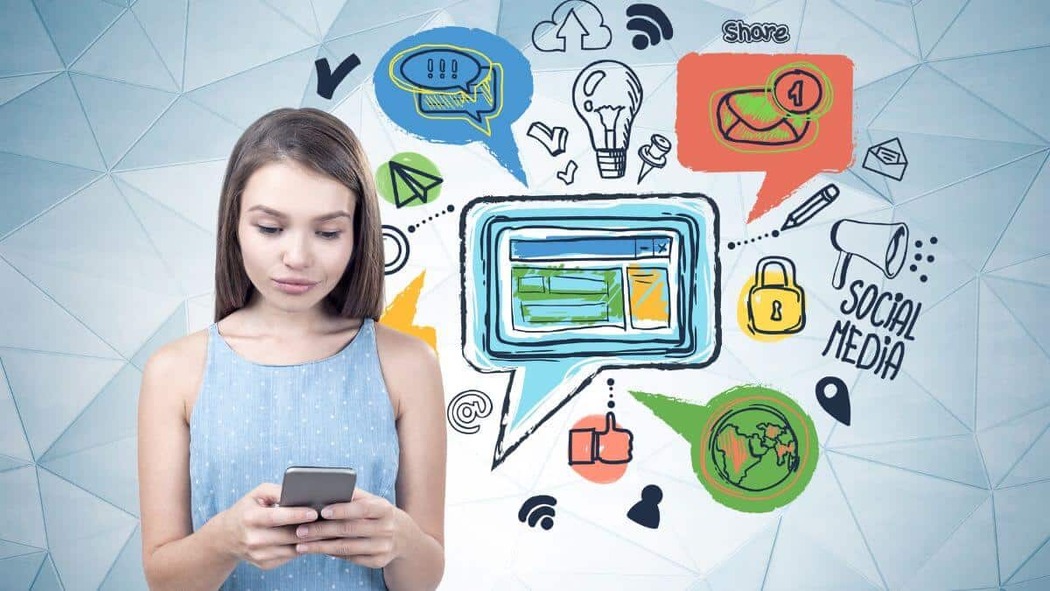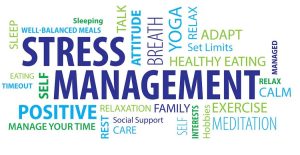Social media has become an essential part of daily life in our interconnected world. It influences how we communicate with each other, how we work, and even how we see ourselves. Instagram, TikTok, Facebook, and X are just a few of the platforms that allow us to connect, learn, and share experiences. However, they also take a hidden toll on our mental and emotional well-being. Constantly comparing ourselves to others, demanding approval, and seeing a filtered version of reality can negatively impact our happiness, confidence, and self-esteem.
While social media can be easy and fun to use, excessive or mindless use can lead to stress, anxiety, or a distorted sense of self-worth. To maintain healthy digital relationships, you need to understand how social media influences your thinking and how to manage its effects. This article explores how social media affects your mental health and offers practical tips for maintaining balance in our always-connected world.
The Impact of Social Media on Mental Health:
Social media has changed the way people communicate, but its impact on mental health is complex. Research suggests that excessive internet use can exacerbate feelings of loneliness, isolation, and anxiety. This phenomenon is because people often compare their lives to the best of others, leading them to overestimate their expectations. People constantly check their feeds out of fear of missing out (FOMO), even if it reduces their productivity or sleep. This habit can lead to low mood, damaged self-confidence, and a sense of disconnect from reality. But it’s not all awful. When used wisely, social media can provide emotional support, a sense of community, and inspiration. The most important thing is our awareness of it.
Emotional Triggers and the Need for Validation:
The need for validation is one of the most powerful emotional pulls of social networks. Likes, comments, and shares are digital affirmations that make you feel better in the short term, but they can also create dependency. When people start judging their worth based on how others react to them online, their mental health becomes tied to how much interest they receive. This digital feedback loop can cause anxiety, especially when your posts don’t get the desired response. Research shows that when people experience online social validation, they experience a surge in dopamine, a neurotransmitter associated with pleasure, leading to compulsive checking. Over time, the effects can make it difficult to distinguish between genuine self-confidence and social validation. The first step toward emotional resilience in the digital world is understanding these triggers.
The Illusion of Perfection and Social Comparison:
Viewing a feed full of perfect photos and lives can alter our view of the world. Social media often depicts carefully curated moments rather than everyday events, creating the impression that everything is rosy. This comparison trap can make you unhappy, lower your self-esteem, and thus harm your mental health. Many people start to see others as happier, more successful, or more beautiful than themselves. This condition can lead to less self-compassion and increased anxiety about your performance. To address this, practicing digital mindfulness—reminding yourself that what you see online is often filtered—can help you maintain a balanced perspective.
Managing Social Media for a Healthier Mind:
Maintaining a healthy relationship with social media requires setting clear boundaries. Limit your usage time and avoid browsing before bed. Unfollow accounts that make you feel down, and instead follow pages that motivate, inform, or inspire you. Instead of simply obsessing over social media, transform your experience from passive to active through meaningful interactions. Regular breaks from technology, such as for a few hours or days, can help you regain your emotional balance. Your worth isn’t determined by the number of friends you have on social media but by the quality of your real-life experiences and relationships.
The Role of Self-Awareness and Digital Well-Being:
Knowing yourself is crucial to understanding how social media affects your mental health. Think about how you feel after being online for a while. Do you feel more energized or more exhausted? Careful use of technology can benefit your digital well-being by helping you stay true to your beliefs and goals while online. Many platforms now offer tools to track your screen time and remind you to take breaks. Practicing gratitude, participating in real-life activities, and building real-life relationships can make you happier and less dependent on others’ online approval. The better you understand how your emotions affect you, the easier it will be to maintain harmony in your online and offline life.
Conclusion:
Social media can help you connect with others or make you feel worse, depending on how you use it. Knowing how it influences your thoughts and feelings, you can regain control of your mind. To improve your mental health, you need to set digital boundaries, practice being present, and focus on authenticity instead of perfection. Don’t let social media define you; instead, use it consciously to express yourself, learn, and grow. Always remember that true happiness comes from accepting yourself and building authentic connections with others, not from getting likes on social media. Used with care, social media can improve your mental health and bring more meaning and balance to your life.
FAQs:
1. How does social media affect mental health?
Social media can negatively impact mental health by making people feel they have to live up to impossible standards and constantly comparing themselves to others. Excessive use can lead to feelings of anxiety, loneliness, or self-denial.
2. What are the benefits of social media for mental health?
Yes. When used consciously, social media can provide people a sense of support, creativity, and connection. It connects people around the world, making it easier for them to share experiences and locate relevant groups.
3. What can I do to reduce the harmful effects of social media?
Limit your screen time, follow accounts that make you feel positive, take regular breaks, and engage in meaningful activities instead of relentless pursuits. Taking care of your online and offline life can benefit your mental health.
4. What is a digital detox? How does it work?
A digital detox is a temporary break from your phone, computer, or other electronic devices. It can help you relax, clear your mind, and refocus on real conversations.
5. How can I be mindful when using social media?
Understand how the content you read makes you feel. Avoid aimlessly browsing and instead respond to messages that add value to your life. Prioritize real interactions over digital validation.



